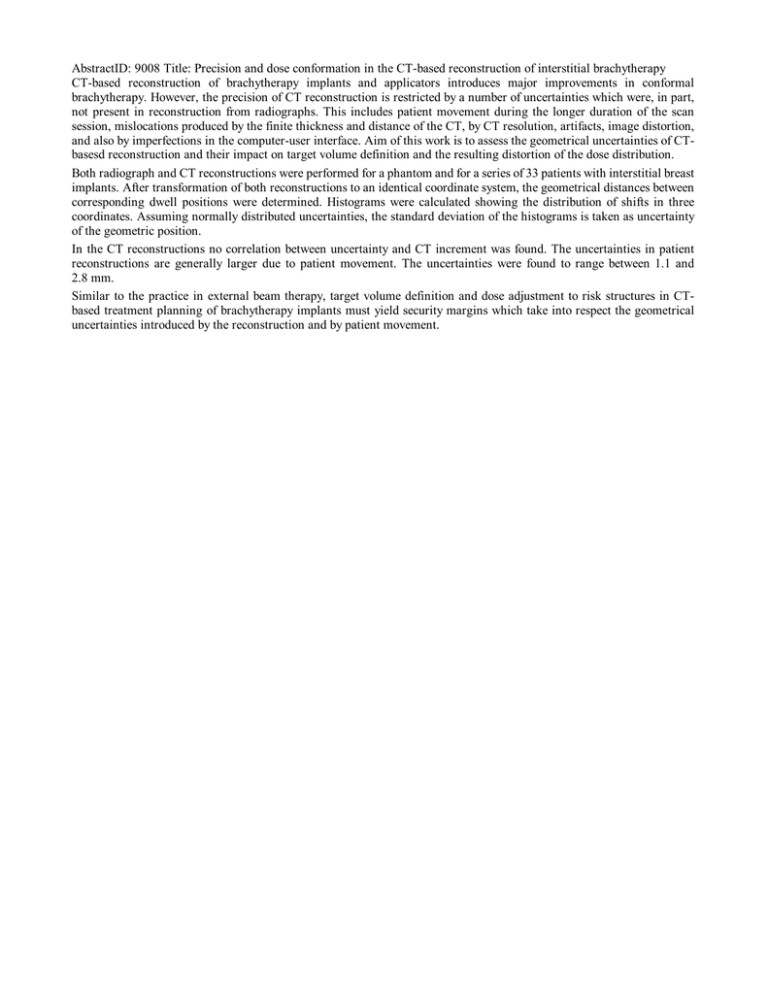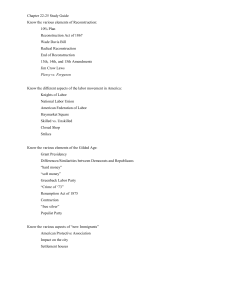Document 14672630
advertisement

AbstractID: 9008 Title: Precision and dose conformation in the CT-based reconstruction of interstitial brachytherapy CT-based reconstruction of brachytherapy implants and applicators introduces major improvements in conformal brachytherapy. However, the precision of CT reconstruction is restricted by a number of uncertainties which were, in part, not present in reconstruction from radiographs. This includes patient movement during the longer duration of the scan session, mislocations produced by the finite thickness and distance of the CT, by CT resolution, artifacts, image distortion, and also by imperfections in the computer-user interface. Aim of this work is to assess the geometrical uncertainties of CTbasesd reconstruction and their impact on target volume definition and the resulting distortion of the dose distribution. Both radiograph and CT reconstructions were performed for a phantom and for a series of 33 patients with interstitial breast implants. After transformation of both reconstructions to an identical coordinate system, the geometrical distances between corresponding dwell positions were determined. Histograms were calculated showing the distribution of shifts in three coordinates. Assuming normally distributed uncertainties, the standard deviation of the histograms is taken as uncertainty of the geometric position. In the CT reconstructions no correlation between uncertainty and CT increment was found. The uncertainties in patient reconstructions are generally larger due to patient movement. The uncertainties were found to range between 1.1 and 2.8 mm. Similar to the practice in external beam therapy, target volume definition and dose adjustment to risk structures in CTbased treatment planning of brachytherapy implants must yield security margins which take into respect the geometrical uncertainties introduced by the reconstruction and by patient movement.
